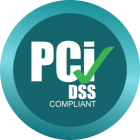Are you looking for corporate credit cards for employees who travel on business trips?
Issuing corporate credit cards for employees help to curb expense management headaches. It also integrates with other technological solutions to ensure seamless user experience.
Choosing the right corporate credit card for employees can yield many benefits. Some benefits are cashbacks, miles, and points worth hundreds of dollars with every business expense incurred. With multiple credit card options available it can become overwhelming, choosing the best one for your business.
In this article, we discuss the types of corporate credit cards available in the market today. Further, we help investigate whether your business needs a corporate credit card or a small business credit card. Lastly, we discuss the key factors to be kept in mind while you pick corporate credit cards for employees who travel.
Types of credit cards for employees
An employee credit card is usually issued by an employer to employees to make payments on behalf of the company. The employees can use the card for business expenses such as office supplies, transportation, accommodation, meals, telecommunication services, and plenty more.
Issuing credit cards ensures there is little-to-no-hassles when it comes to managing business expenses. Additionally, employees can also avail perks with frequent use.
Let’s look into the different types of employee credit cards available in the market today.
- Corporate credit cards
Large companies with a considerable number of employees generating an annual revenue of at least $ 4 million can avail a corporate credit card. Of the two types of corporate credit cards available, employees can avail either an individual liability card or a corporate liability card.
With an individual liability card, the user is liable for making the payment and is reimbursed by the company after filing an expense report. Whereas with a corporate liability card, the company makes the payment for the approved charges. In this case, the user pays for the unapproved charges.
- Business credit card
Small businesses with a low employee size, often resort to using business credit cards. These cards are valuable as they increase the purchasing power of smaller corporations. Expenditures made using these cards can be tracked easily. In some cases, pre-approval is required prior to making a purchase.
- Prepaid business cards
Prepaid business cards are very different as compared to the former two credit cards. Prepaid business cards are safer as they do not have any borrowed money involved. The employer funds these prepaid cards. The employees can use the cards as long as there is money in it. Once done, the employer would need to recharge the card.
Based on the nature of your business, annual revenue, and liability, you can choose the type of employee credit card that is right for you. Corporate credit cards are for large companies that generate millions of dollars in annual revenue. All other businesses can resort to business credit cards and prepaid business cards.
SUGGESTED READS:
Major challenges in managing corporate credit cards
Best practices to manage corporate credit cards
Corporate credit card or a small business credit card?
Not sure which credit card is the best pick to suit your business needs?
Let’s make things easier by differentiating the two with the help of a table:
Key FactorsCorporate credit cards for employeesBusiness credit card for employeesAnnual fee$0-$100or more per card$0-$100per cardRewardsUp to5%cashbackUp to5%cashbackPerksAirport lounges, travel insurance, etcAirport lounges, expedited airport screening, car rental insurance, etcLiabilityEither corporate liability or individual liabilityIndividual liabilityNumber of employee credit card per accountNo maximum limitNo maximum limitAnnual Percentage Rate (APR)No interest rate since it is paid monthlyIssuer set their own interest rateApplicationCannot be applied onlineCan be applied onlineCompany sizeLarge company with annual revenue of at least$4 millionSmall to medium-size company
Key factors to consider while choosing corporate credit cards for employees
You might have narrowed down on the type of business credit card you want. But you still have to find a credit card issuer that suits your business requirements. This is a whole different ball game.
Care must be taken to pick the right card, which strikes a balance between interest rates, reward cards, bonus sign-ups, Annual Percentage Rates, fees, perks, and rewards.
Based on the nature of your business expenses, consider the following pointers while making your decision:
- Interest rates and fees
To determine your interest rate, the card issuer will look into both your personal and business credit. An excellent credit score will mean a low-interest rate, whereas a bad history of credit score will usually mean a higher interest rate.
Irrespective of which card issuer you go for, all card issuers charge a late fee and returned payment fee. Fees such as cash advance fees, annual fees, balance transfer fees, and foreign transfer fees vary by card.
- Rewards and perks
Banks offer rewards and perks in different modes. Some banks reward the user by offering points that can be used for goods, services, miles, or even cash. Whereas some others offer benefits on amenities, travel upgrades, invites to exclusive events, etc. While these offers may sound great, check for limitations as some of these offers may render to be useless in reality.
- Terms and conditions
The introductory price and benefits are always attractive when you consider getting a new business or corporate credit card. But ensure you read through the terms and conditions before agreeing to sign up. This is done to avoid any hidden costs and fees lurking to make an unannounced appearance.
- Accessible customer service
Check to see if the credit card company offers an easy-to-reach number, live chatbots, or customer service representatives. This becomes paramount when you want to ask queries or wish to resolve problems related to stolen or lost cards.
- Reporting tools
Consider getting a credit card with a solid reporting tool. There are numerous expense reporting softwares that can provide modern technological solutions. For example, an automated expense management software like Fyle helps you track, automate, and monitor employee expenses. Additionally, you can also gain insight into risk with the help of analytics. Having a strong expense reporting software incorporated in your credit card can help maintain your credit score, maximize rewards, and more.
- Integration with accounting software
To make life easier for both your employees and the finance team, your corporate credit cards need to be in line with an accounting software. The best accounting softwares offer add-ons and third-party integrations which helps save time and gives a clearer picture of your business expenses.
Accounting software such as Quickbooks online automatically receives financial information from your bank and credit card provider to track your finances. Accounting softwares also automatically download transaction details from your bank and credit card accounts. This helps your employees and finance teams escape tedious manual work.
Corporate credit cards are a great choice if you want to simplify and monitor employee business expenses. Hence, you must pay heed to your business requirements. This will help you choose the right corporate credit cards for employees.
%20(1).jpeg)


.png)







